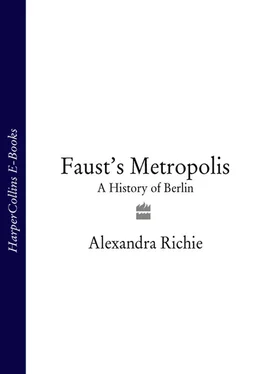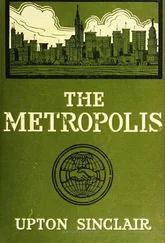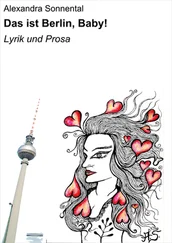But sympathy for citizens of the former GDR can go too far. Their Berlin is being transformed beyond recognition largely by western money: the dreariness of a decade ago has been replaced by buzzing and colourful streets and shops and the sense of freedom there is quite new. Whatever they now say about their ‘camaraderie’ or the marvellous child-care benefits of days gone by the GDR was virtually bankrupt by 1989, kept alive only by Soviet muscle and by East German minders like Erich Honecker and Erich Mielke and Markus Wolf. The ‘benefits’ were paid for by crime and oppression; even Wolf admits that selling ‘dissidents’ was the state’s biggest hard-currency earner. The end of the GDR is something to be celebrated, not mourned.
Even without the enormous financial and psychological costs of reunification, Berlin would find it difficult to convince all Germans that the move is a good idea. The much-favoured Spreebogen architect Axel Schultes complained in 1997 that ‘Berlin is stumbling into an almost too precipitous future. The euphoria of beginning is overshadowed by the feeling of being late … the fear of making mistakes, fear of taking risks, fear of loss of identity.’ Schultes even quoted Theodor Fontane, who said of the reconstruction of Berlin in the 1870s: ‘the city is growing, but the botching continues’. 24Dr Wolfgang Schäuble implored Germans to back the new capital, emphasizing that although the move might be expensive or cause disruption ‘it is not about the work place, moving or travel costs, or regional politics or structural politics. All those things are important, but in reality it is about the future of Germany. That is the decisive factor.’ 25Even so, in a 1993 opinion poll only 51 per cent of Germans said that they thought of Berlin as their capital. 26Berliners clearly have much to do if they are to win over their fellow Germans. But they can at least take cold comfort from one thing – Berlin has been here before.
It is difficult to believe it now, but Berlin was not much more popular in Germany when it was first named capital in 1871. For many it has always been something of an ‘unloved’ capital, a place which arouses resentment or blame as much as respect or admiration. This has been brought about by German history itself. The country does not have a tradition of a grand capital and the choice of Berlin was made above all by the politics of ‘blood and iron’.
‘In the beginning, there was Paris’ – or so said nineteenth-century Frenchmen. From the time of Clovis it has been accepted that Paris is an expression of France’s political sovereignty – so much so that those who sought to undermine it always moved the capital – Charlemagne to Aix-la-Chapelle, Marshal Pétain to Vichy. Berlin holds a very different place in German history. Goethe once complained that whereas the French could boast proudly that ‘Paris is France’, his countrymen ‘have not even a region of which one could say: “Here is Germany!”’ Walter Benjamin named Paris, not his native Berlin, as the capital of the nineteenth century. 27Throughout the Middle Ages the Holy Roman Emperor moved from place to place and although German lands contained numerous beautiful princely cities there was never an obvious equivalent to London or Paris. At least not until Bismarck. The decision to name Berlin as capital in 1871 was immensely popular in the city itself but many other Germans resented the choice – it was ‘too Prussian’, ‘too showy’, ‘too militaristic’, ‘too Protestant’, ‘too pompous’, ‘too new’. An article entitled ‘The Voice of Germany’, which appeared in Die Grenzbogen in 1892 to mark Berlin’s twentieth anniversary as capital, was typical:
In the last days of the old year the Berlin newspapers have once again been given the opportunity to pontificate dithyrambically about the Reich capital. The newspapers carefully explain to those in the dumb provinces … how Berlin has truly become the head and heart of Germany, and that in all political, social, artistic and literary questions Berlin’s judgement is to be known as the ‘voice of Germany’ … But as long as we still have cities like Cologne, Stuttgart, Munich and Leipzig, Berlin will never have the right to bear the German tradition and spirit.
It concluded with the words: ‘there is no place as unloved in all Germany as the capital Berlin’, which was nothing but ‘a dreadful mixture of Warsaw and Paris’. 28
Such attacks continued after 1900 even when Berlin was at its most successful. Now it was called a ‘Babel’, a ‘gigantic slum’, a ‘hotbed of radicalism’. In Der Hungerpastor Wilhelm Raabe decries its moral laxity; others called it the ‘tomb of Germanism’. 29Berlin was attacked by the new breed of völkisch nationalists who had watched in horror as the city reached a population of 4 million in 1920 and for whom it lacked any sense of tradition; the fact that reformers like Ernst Dronke lauded its ability to destroy class barriers or Heinrich Mann praised the Menschenwerkstatt which would ‘hasten democratization’ only made it seem more dangerous. What was a ‘Berliner’ anyway, they asked suspiciously, if not a mere immigrant from the east? And, in a way, they were right. As Heinz Knoblock pointed out in his book Herbert-Baum-Strasse 43 : ‘There are philosophers buried in Weissensee, linguists, famous jurists and architects, historians and religious scholars, the Asian specialist Huth, the publisher S. Fischer, the philosopher Hermann Cohen. No one in the ranks of honour was born in Berlin. They came from Poland, Hungary, Silesia, Moravia, Galicia and Ukraine, but also from Baden and Bavaria, Riga and Magdeburg.’ 30And because Berlin was always changing and growing it never really had a chance to develop an identity. It remained the ‘unfinished capital in the middle of an unfinished nation’. Princess Blücher saw it as a new city, ‘built up in the midst of a dull sandy plain by a patient, hard-working people who have no traditions of culture and style to carry on, but are more or less at the beginning of their history.’ 31Even Walther Rathenau quipped that he was not certain if there were just ‘no Berliners left, or if they simply haven’t appeared yet’, concluding that ‘I believe most Berliners are from Posen and the rest are from Breslau.’ 32By 1912 one fifth of the population were immigrants, grist for the mill of those who saw Berlin as ‘too cosmopolitan’ or ‘too eastern’ or ‘too Jewish’, or just ‘too foreign’. The defeat in 1918, the Spartacus Uprising and the slow, violent death of the Weimar Republic on its streets did little for the city’s reputation. Hitler might have turned his Germania into a popular capital for an adoring local public had he succeeded in creating his Thousand Year Reich, but his demise in the Götterdämmerung of April 1945 and the subsequent attempts by Germans to dissociate themselves from anything to do with Nazism worked against Berlin.
The divided and disgraced city was in no position to resume its role as capital after the war. The East Germans tried to exploit its old status by illegally naming it capital of the GDR in 1949 but it did little good. By the time Berlin was being considered in 1989 the very fact that it had last served as a capital to Hitler’s murderous regime made people nervous. Many western Germans had come to believe that the nation could only be true to itself if it was ‘federal’, with an insignificant city like Bonn at its head. Germany, they argued, should be united not by a strong centralized capital, but by other things like language or culture or the Deutschmark. Berlin’s post-war reputation did not help; ex-East Berlin was seen as the evil capital of the GDR crawling with former Stasi agents and government hacks while western Berlin retained its reputation as a centre for drug addicts and anti-nuclear activists and ‘artists’ who resented the loss of their subsidized lives in the shadow of the Wall. The journalist Felix Huby said recently that his friends from Stuttgart not only believe that German culture ‘begins in Palermo and ends in Tauberbischofsheim’; they think that Berlin is ‘godless, cultureless and for the last forty years has taken paid leave from capitalism’. 33The city’s image is not helped by the fact that far from rejoicing at their good fortune many Berliners spend time demonstrating against it: the number of protests mounted there rose from 1,008 in 1996 to 2,070 in 1997.
Читать дальше












